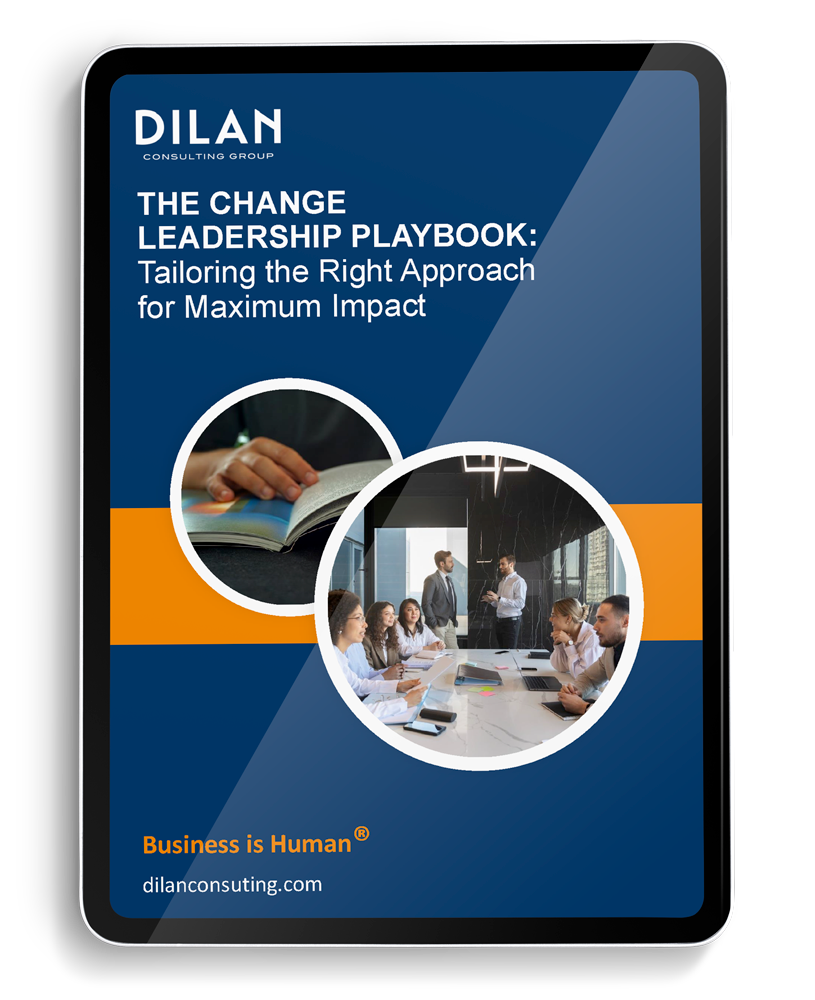Organizational development (OD) is an often-misunderstood concept, crucial for the growth and sustainability of modern organizations. At its core, OD is a systematic approach aimed at increasing an organization’s effectiveness and health through planned interventions in the organization’s “processes,” using behavioral-science knowledge. However, as proponents of the “business is human” philosophy, like those at Dilan Consulting Group, would argue, OD transcends these technical definitions, embedding itself deeply in the understanding that organizations are not merely mechanical systems but living, breathing entities made up of individuals.
The Human Essence of Organizations
The fundamental premise of “business is human” is that businesses do not operate in a vacuum. They are complex ecosystems comprising individuals with unique motivations, emotions, and potentials. This human-centric view emphasizes that the success of any organizational change or development strategy inherently relies on recognizing and nurturing the human elements within the corporate structure. It’s a perspective deeply rooted in the principles of clinical psychology, which understands change as a deeply personal, often challenging, process.
Defining Organizational Development
Organizational development is, therefore, an effort to initiate and manage change within an organization in a way that considers and respects its human components. It’s about creating an environment where employees feel valued, understood, and integral to the organizational journey. This involves a variety of strategies, including but not limited to, enhancing communication, solving problems, fostering leadership, and promoting cultural change.
At its best, OD is a holistic process that focuses on improving the organization’s capacity to handle its internal and external operations effectively. This is achieved through interventions aimed at improving team dynamics, leadership styles, organizational structures, and work processes—all through the lens of psychological principles that prioritize human well-being.
How Organizational Development Helps Organizations
- Enhanced Performance: By focusing on improving the ways teams and individuals interact and work, OD can lead to more efficient processes, better quality work, and ultimately, improved organizational performance.
- Increased Adaptability: In today’s rapidly changing business environment, the ability to adapt quickly to new challenges is invaluable. OD promotes a culture of continuous learning and flexibility, helping organizations navigate change more effectively.
- Improved Employee Satisfaction: By centering the needs and well-being of employees, OD can lead to higher levels of job satisfaction, lower turnover rates, and a more engaged workforce.
- Stronger Leadership: OD interventions often focus on developing leadership skills that are inclusive, empathetic, and effective, creating leaders who can inspire and guide their teams through complex challenges.
- Fostering Innovation: A human-centered approach to organizational development encourages creativity and innovation by creating a safe environment for employees to share ideas and experiment.
Why Invest in People
Investing in organizational development is fundamentally an investment in people. In the philosophy that “business is human,” this investment is not optional; it’s essential. Here are several compelling reasons why organizations should prioritize this investment:
– People are the Core of Innovation: Every breakthrough idea, every solution to a problem, and every creative process starts with people. Investing in developing your employees’ skills and well-being directly contributes to your organization’s capacity for innovation.
– Employee Well-being Leads to Organizational Health: There’s a direct correlation between the well-being of employees and the overall health of an organization. Happy, fulfilled employees are more productive, committed, and less likely to leave, reducing recruitment costs and preserving organizational knowledge.
– Adaptability is a Human Trait: Organizations that are adaptable and resilient in the face of change have one thing in common: they understand and leverage the human capacity for adaptability. Investing in people means fostering a culture where change is embraced as an opportunity for growth.
– Sustainable Success is People-Centered: Long-term success isn’t just about hitting quarterly targets or achieving year-on-year growth. It’s about building a sustainable, ethical business that contributes positively to society. This kind of success is only possible when organizations view their employees not as resources to be managed but as human beings to be developed and cherished.
In conclusion, organizational development from a “business is human” perspective is not merely a set of strategies or interventions. It’s a fundamental belief in the potential of people within organizations to grow, adapt, and succeed. It acknowledges that the path to organizational excellence is through the hearts and minds of its employees. As we move forward into increasingly complex and challenging business environments, this human-centric approach to development isn’t just beneficial; it’s essential. Organizations like those guided by the principles of Dilan Consulting Group, which integrate the insights of clinical psychology into their approach to organizational development, are at the forefront of creating workplaces where people feel valued, understood, and fully engaged in their work. Investing in organizational development, therefore, is not just an investment in the future of a business but in the future of the people who make it what it is.




